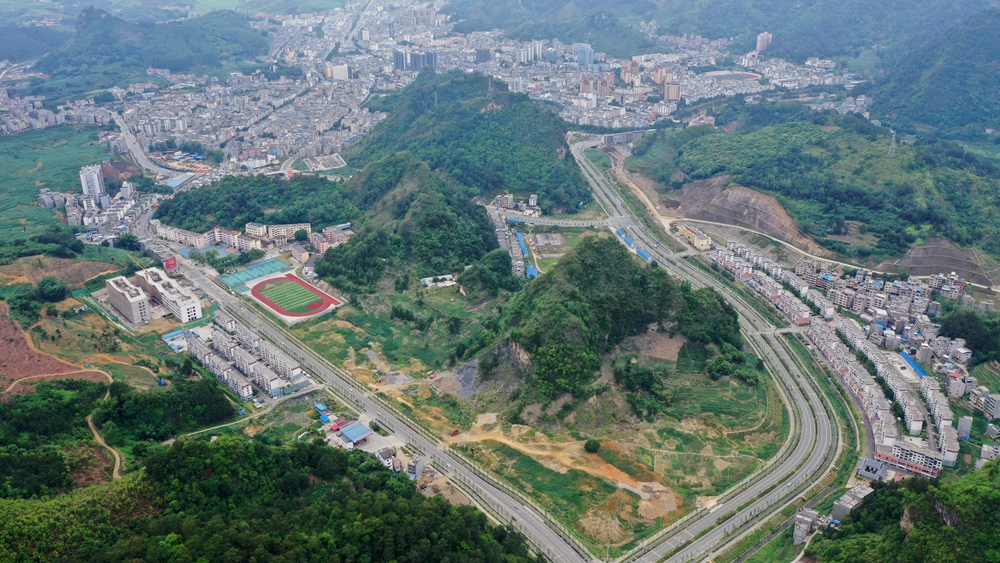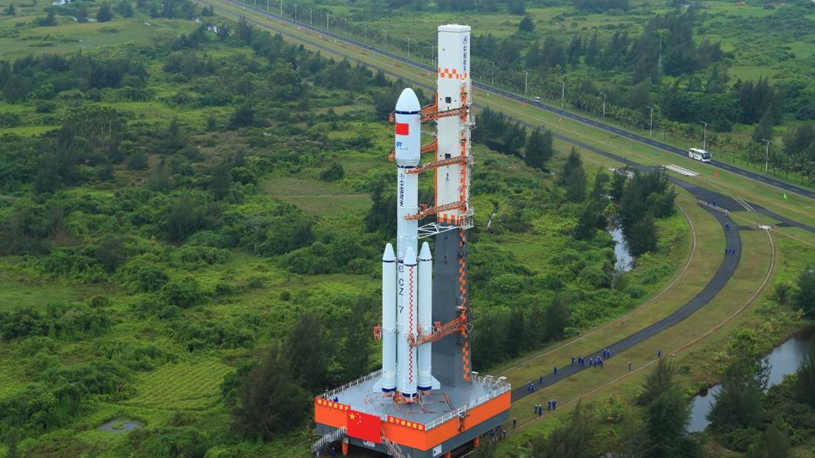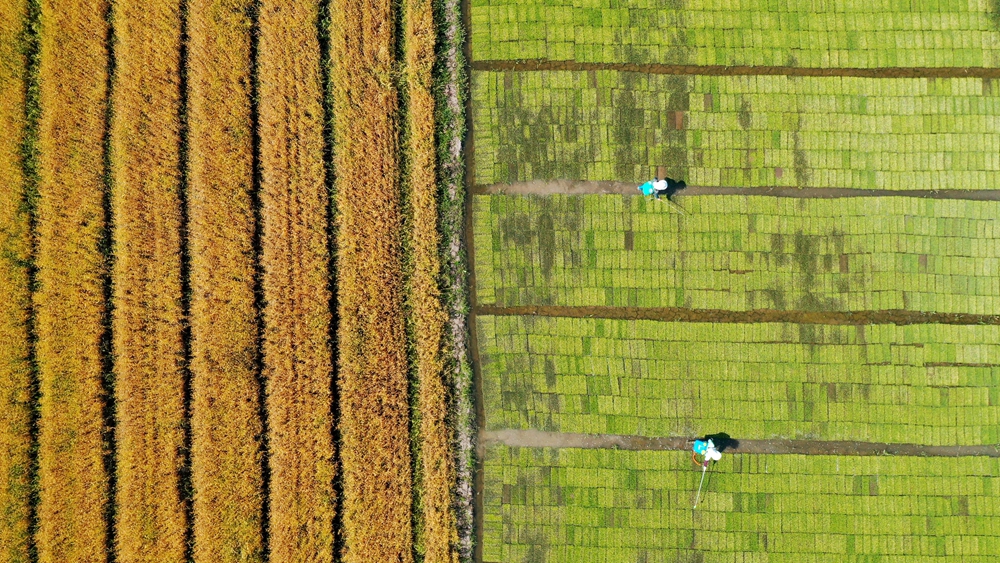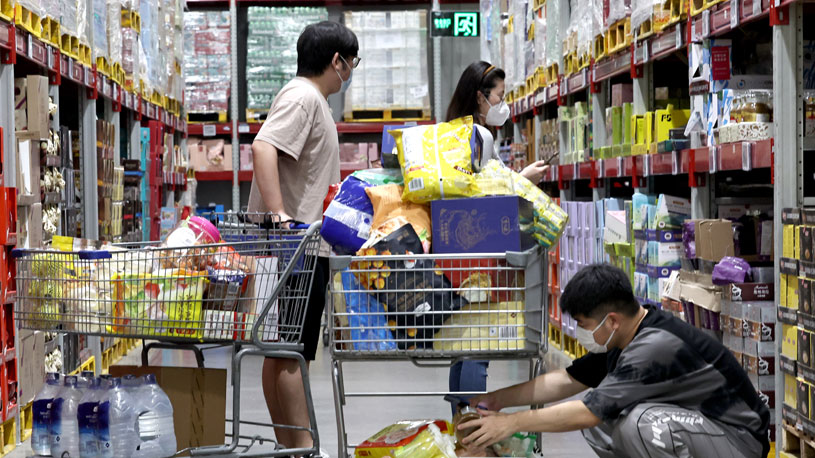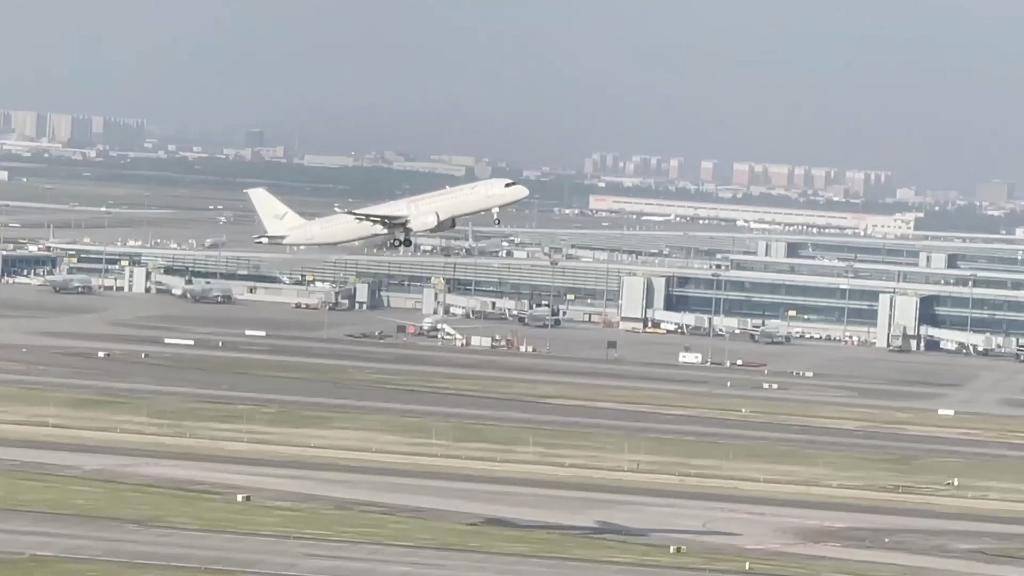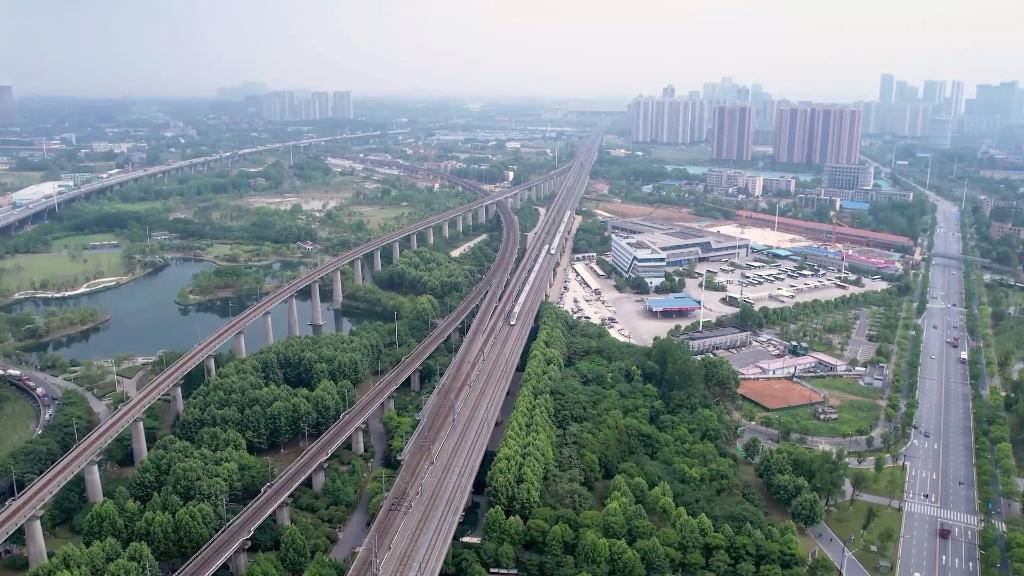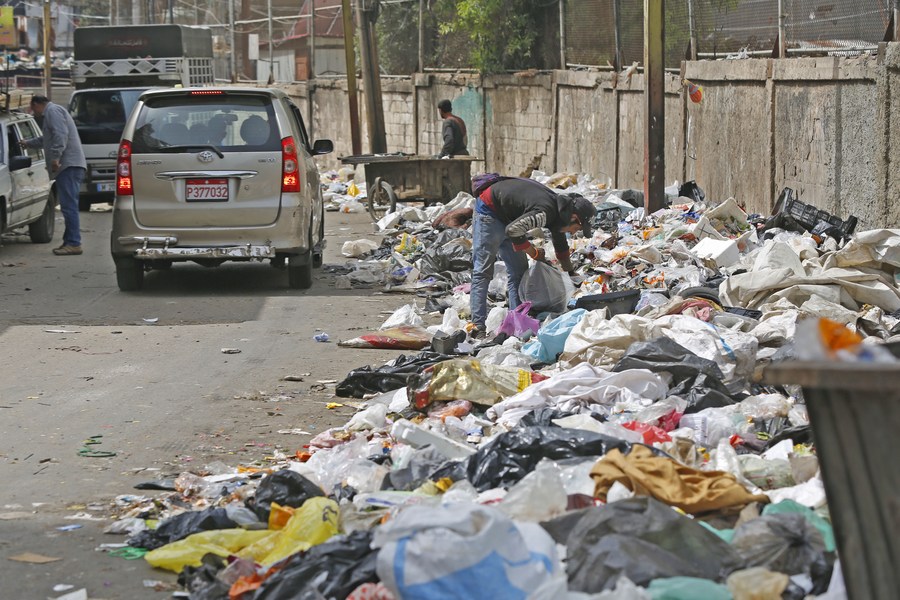
A man collects waste in Beirut, Lebanon, on May 14, 2022. (Photo by Bilal Jawich/Xinhua)
Waste management has been a chronic problem for Lebanon, whose failure to find a proper solution to its garbage crisis made international headlines.
By Dana Halawi
BEIRUT, May 14 (Xinhua) -- Randa el-Rassi woke up again in her house in Zarif in the heart of Beirut to the hideous odor of trash left uncollected by the roadside near her building.
The waste collection companies only came here when the pile got too high, the young lady complained.
"It's a shame that we still have to endure such poor services in this country, which affect our lives and expose our health to great risks," el-Rassi told Xinhua.
Samar Khalil, an environmental management specialist, attributed the pile-up of garbage in the streets of Beirut and other areas to the interrupted work of trash collectors due to unpaid wages in light of the country's steep financial crisis.
Trash collection companies began facing problems when the Lebanese pound started losing value against the U.S. dollar on the parallel market in 2019, according to Khalil, who is a member of the Waste Management Coalition, a group of civil society organizations, independent experts, and environmental activists in Lebanon.
"Trash collection companies hire foreign workers who were normally paid in U.S. dollars but the Lebanese government failed to secure the foreign currency for these companies, forcing them to halt their operations occasionally," Khalil told Xinhua.
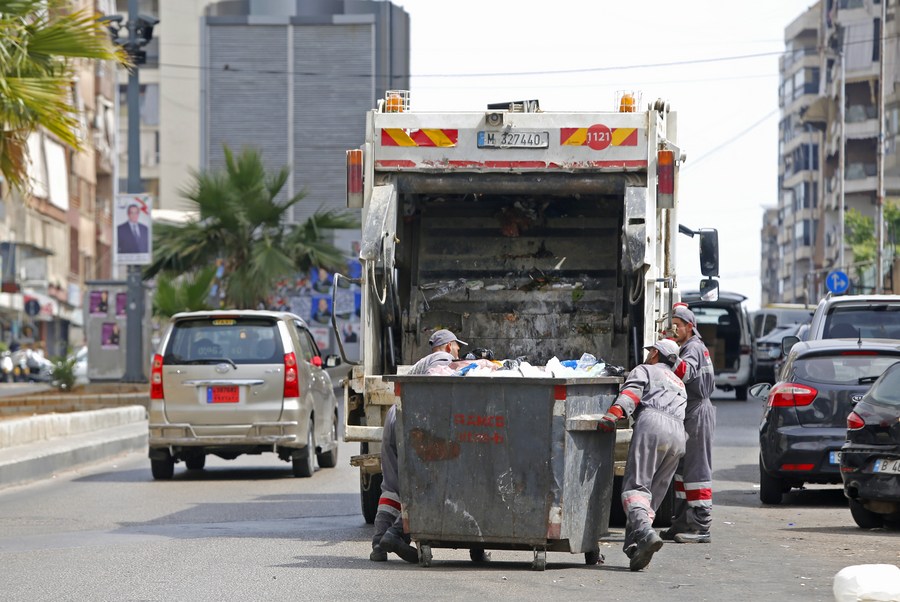
Cleaners collect waste in Beirut, Lebanon, on May 14, 2022. (Photo by Bilal Jawich/Xinhua)
Waste management has been a chronic problem for Lebanon, whose failure to find a proper solution to its garbage crisis made international headlines.
Lebanon produces more than 2 million tons of trash per year with 94 percent buried in landfills and around 6 percent got recycled.
Trash is currently being buried in the Jdeideh landfill even though it has already become saturated, said Khalil.
Julien Jreissati, a campaigner at Greenpeace Mediterranean, said the trash crisis was further exacerbated as two sorting and composting facilities for municipal waste located in Karantina were severely damaged by the explosions that rocked Beirut on Aug. 4, 2020.
"Unfortunately, the government does not have money to rehabilitate these facilities," he told Xinhua.
Experts emphasized the need for the government to adopt a long-term comprehensive strategy to deal with the waste crisis in the country by starting with the implementation of the original waste hierarchy by reducing waste, encouraging the reuse of items, and waste-sorting from the source.
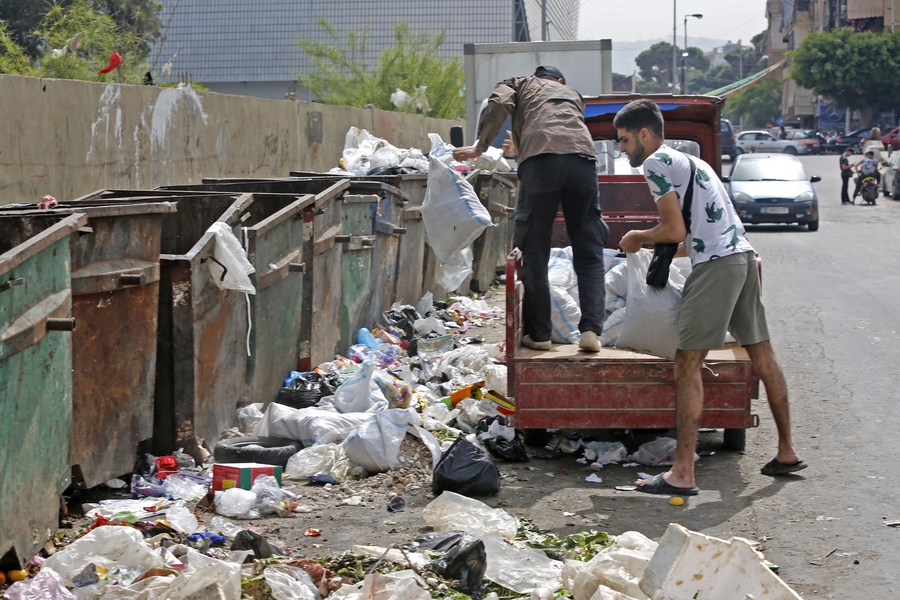
People throw trash in Beirut, Lebanon, on May 14, 2022. (Photo by Bilal Jawich/Xinhua)
"We can recover almost 70 to 80 percent of our trash if we work properly on sorting. We can compost 50 percent of the trash and recycle 20 to 30 percent," Khalil said.
Lebanese Environment Minister Nasser Yassin told Xinhua that his ministry has started implementing a comprehensive strategy to deal with the trash crisis, which includes a long-term and sustainable solution to this issue, but the lack of funds and the financial crisis in the country are delaying much of the solutions.
The most imminent step, Yassin said, is the signing of an agreement on May 18 with the World Bank for the rehabilitation of the recycling and composting factories destroyed by the Beirut blasts. The project is scheduled to be finished in the summer of 2023.
The minister added that the government has agreed to increase the money paid to trash collection companies which would allow them to increase the wages of their workers paid in Lebanese pounds.
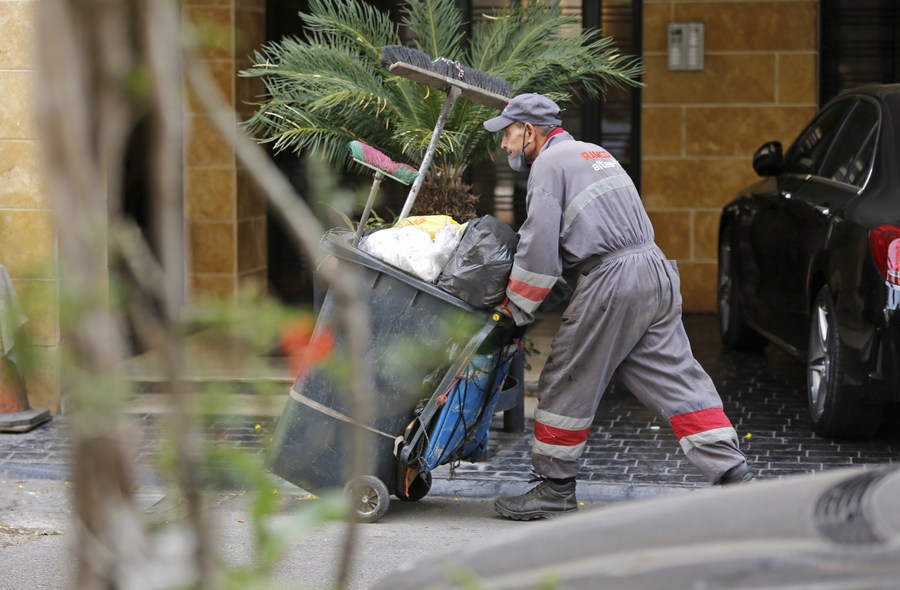
A cleaner collects waste in Beirut, Lebanon, on May 14, 2022. (Photo by Bilal Jawich/Xinhua)
Yassin said that his ministry's strategy favors decentralization where municipalities are given a bigger role to remove trash and follow the hierarchy of waste management.
"Municipalities need money to deal with the trash so they can impose a monthly fee on houses and shops for this purpose amid the absence of needed funds from the government due to the current crisis," he said.
Another step, according to Yassin, is the establishment of the National Solid Waste Management Authority which would be a regulator providing technical support. "This is under process," he said.
Yassin said he will also propose during next week's cabinet session a map for nine new landfills that are much needed as sorting and composting would only reduce around 60 or 70 percent of the trash while the other 30 percent would have to go to landfills.
Lebanon has been facing an unprecedented financial crisis and the country is currently negotiating with the International Monetary Fund to unlock billions of dollars in the hope to save the country from its multifaceted crisis. ■


